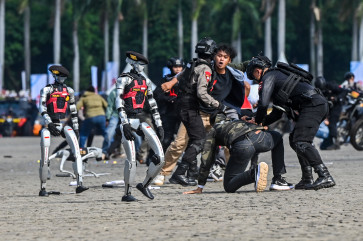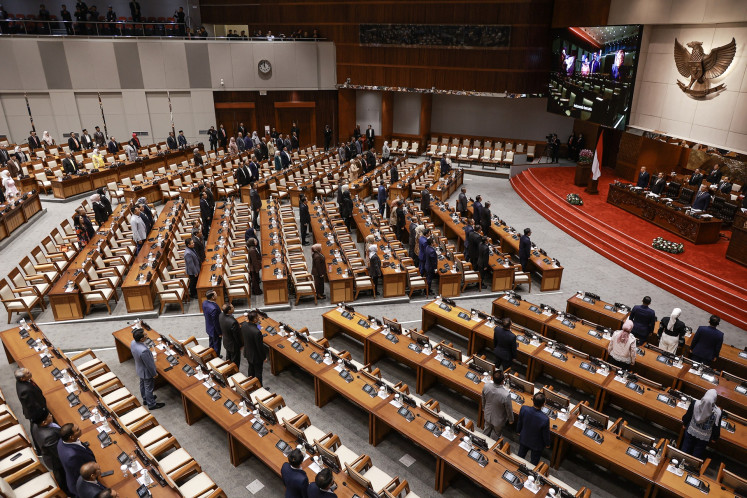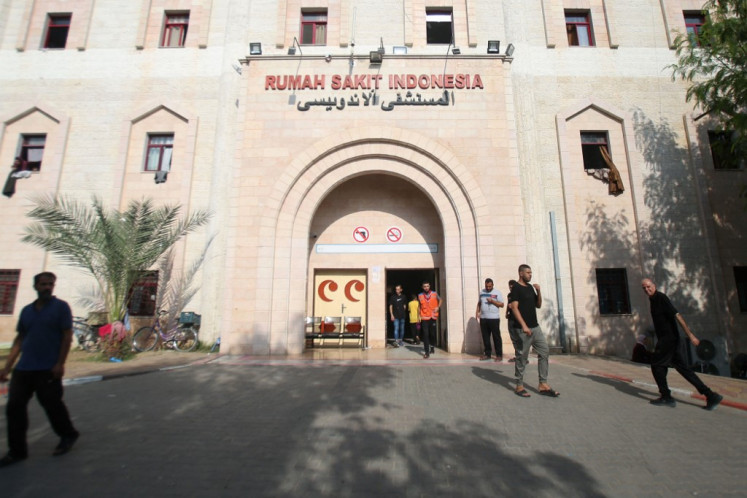Popular Reads
Top Results
Can't find what you're looking for?
View all search resultsPopular Reads
Top Results
Can't find what you're looking for?
View all search resultsUnpacking Dewantara's vision
On one hand, globalization advances our understanding that an education system is protean by nature and therefore subject to revolutionary outlooks, which may totally alter the system in line with the exigent global needs
Change text size
Gift Premium Articles
to Anyone
On one hand, globalization advances our understanding that an education system is protean by nature and therefore subject to revolutionary outlooks, which may totally alter the system in line with the exigent global needs.
On the other hand, as globalization operates asymmetrically from a certain sociopolitical context, it affects social inequities, often leading to the dilution of one's cultural and ideological roots.
Amid both cultural and ideological contestation triggered by the current sweep of globalization in education, the publication of Visi Pendidikan Ki Hadjar Dewantara (Ki Hadjar Dewantara's Education Vision) is long overdue.
The national education system has been overshadowed by the perpetuation of neo-liberal interests, which surreptitiously relegates local cultural and ideological values spearheaded by the country's legendary founding father of education, Soewardi Surjaningrat, a.k.a. Ki Hadjar Dewantara.
Bartolomeus Samho tries to unpack to the readers Ki Hadjar's long-forgotten educational vision, manifested through his famous slogan ' 'Ing ngarso sung tuladha; ing madya mangun karsa; tut wuri handayani', which means 'Provide a model; create a goal; and provide constructive support' ' and through its methods emong (to care for), among (to serve) and pamong (to protect).
He then connects this vision to Ki Hadjar's five basic tenets of education known as pancadharma or five merits: nature, freedom, culture, nationhood and humanity.
His synthesis of Ki Hadjar teachings in the book serves as an important backdrop against which Samho challenges contemporary education practitioners and policymakers in not only fathoming Ki Hadjar's thoughts, but also contemplating and applying them in a real practice.
Cognizant of educational practices hitherto, Bartolomeus feels irked with what he calls the 'reductive understanding' of the true nature of education, which in turn, as he argues, has the potential to reduce the nature of human beings.
He feels the notion of education today has been narrowly construed as simply formal teaching practices with the infamous aim of the sole intellectual pursuit.
Such a reductive understanding nullifies the genuine spirit of education as 'a site of nurturance' where learners are continuously encouraged to be conscious of their potentials as humans, to unearth and expose them without fear. In essence, the spirit of education underlying Ki Hadjar's tenets is liberal education.
The lengthy historical narratives of Ki Hadjar's personalities and life struggles under the Dutch colonial era also helps broaden readers' horizons about the life story of a man dubbed 'the father of national education'.
Yet, Bartolomeus messages of narrating Ki Hadjar's life journey go beyond simply eulogizing Ki Hadjar with such sobriquets as a 'social-sensitive leader', a 'religious and brave leader', a 'pluralist leader' and a 'true nationalist', all of which become the subsections of a chapter in the book.
By presenting this narrative in the chapter, Bartolomeus aims to inspire readers by reflecting on Ki Hadjar's past struggles in eliminating class marginalization and defending the educational rights of the disadvantage (i.e. the pribumi) against Dutch imperialism, hence the founding of the Taman Siswa.
The relevance of this historical narrative as well as the Chapter on Ki Hadjar's educational vision to the contemporary educational practices is that, as Bartolomeus admits, the majority of Indonesian people have not yet enjoyed access to education due to class stratification.
That is, education has now become an exclusive commodity of the rich, and therefore helps contribute to the widening the gap between the advantaged and the disadvantaged.
Also, the current emphasis on students' cognitive aspect at the expense of their character building has undermined the principles of holistic education, which integrates knowledge with social, emotional and spiritual domains.
Finally, the tendency of policy efforts to adopt Western educational models have summarily dismissed and even disrupted local values.
To readers wishing to learn from past wisdom and revive it in current educational practices, this book is truly a source of insight and inspiration.










